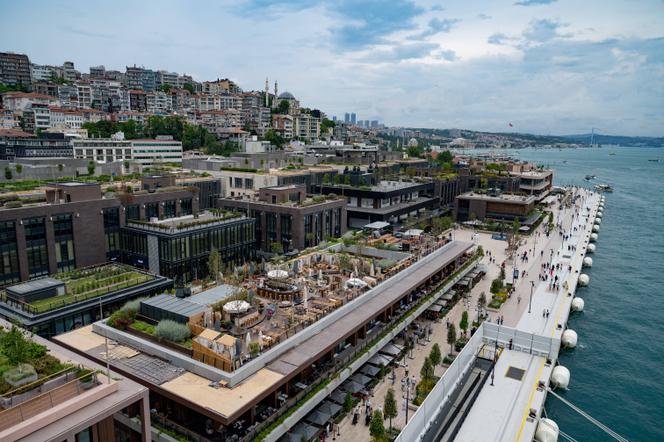


In his fifties and well-spoken, Engin has always been a restaurateur, from father to son, long before the appearance of tourists along the narrow, serpentine streets of Karaköy ("black village" in Turkish), the long-popular port district on Istanbul's European shore where he grew up and has worked all his life. While other shopkeepers turned to street food and trendy cafés, this child of the village (who prefers not to give his real name) persevered with simple, traditional cooking, featuring vegetables and seasonal dishes.
For a long time, he has heard of the colossal projects to transform what the district's old-timers called the "Tuesday market," and has since been known as the Galataport. Encompassing some 100,000 square meters bracketed by the hills of Pera, the dark waters of the Bosphorus and the Galata Bridge, plans to renovate and redevelop this long, thin stretch of just over 1 kilometer suddenly proliferated from the early 2000s onwards. With its breathtaking water-level views over the mouth of the Sea of Marmara and the Golden Horn, its gigantic warehouses, ancient customs buildings and hookah cafes, where visitors could contemplate the hustle and bustle of the world for hours on end, the place was sure to whet appetites.
The era was one of economic success and investment at every turn, supported by the new men of then-prime minister Recep Tayyip Erdogan, advocates of hard-line neoliberalism. Galataport was to become one of the bridgeheads of luxury tourism by transforming vacant warehouses and historic buildings into chic hotels and shops. Promoters also hoped to be able to welcome three or four cruise ships a week with wealthy clientele from the four corners of the globe, all in a protected and secure environment worthy of the biggest shopping malls.
A first tender, launched by state-owned Turkish Maritime Enterprises (TDI), was won by the Royal Caribbean Cruises consortium in 2005 for €3.5 billion. It was a smoothly managed deal, but was quickly taken to court by the Istanbul Chamber of Town Planners. Critics also pointed to an abnormally long transfer of operating rights (49 years) and a vast privatization of the port area.
Added to this was the presence in the consortium of the wealthy and infamous Israeli shipowner Sammy Ofer, whose name was to become embroiled in a dark story of trading with Iran. The government was forced to torpedo the process. Then-finance minister, Kemal Unakitan, said not without humor that the Galataport rehabilitation project had become Galatamort (meaning that it has died). Nevertheless, he promised a new tender.
You have 40.34% of this article left to read. The rest is for subscribers only.
